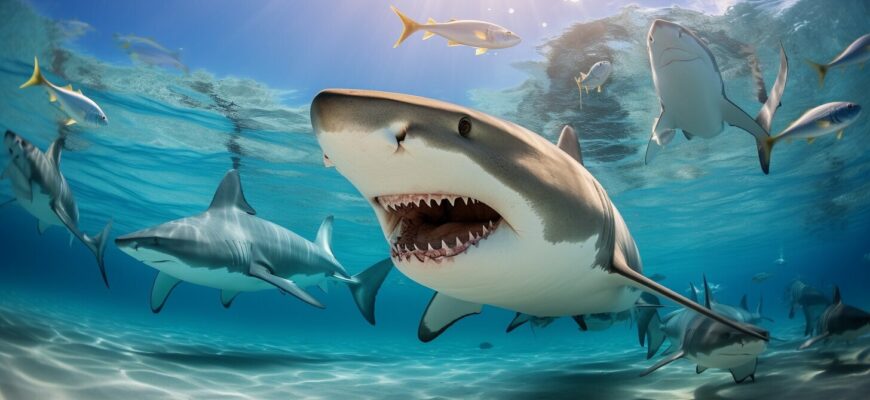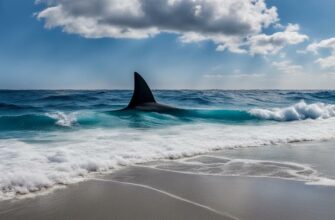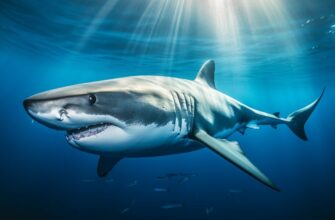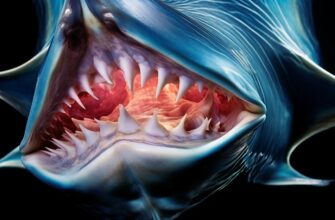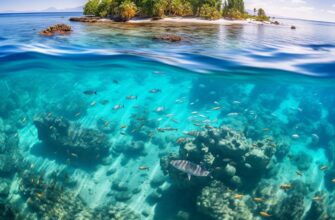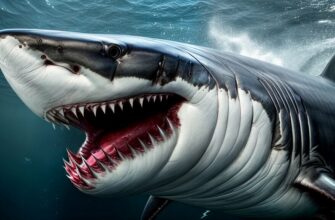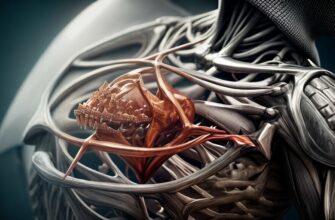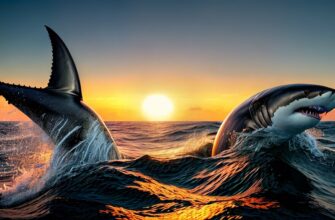Have you ever wondered whether sharks have a backbone like other vertebrates? You’re not alone! Sharks are fascinating creatures known for their unique physiology and hunting abilities. In this article, we will explore the anatomy of sharks and answer the burning question: do they have a backbone?
First, let’s take a closer look at the anatomy of these fascinating creatures and discuss how it differs from other fish. Understanding the basic structure of sharks will help us better understand their skeletal system, which we will explore in detail in the following sections.
- Anatomy of Sharks
- Anatomy of Sharks: Skeletal Structure
- Anatomy of Sharks: Unique Characteristics
- Do Sharks Have a Backbone?
- The Importance of Cartilage in Sharks
- The Importance of Cartilage in Sharks
- Frequently Asked Questions about Sharks’ Cartilage
- Do sharks have any bones at all?
- What is cartilage made of?
- Can humans benefit from shark cartilage?
- Do sharks ever suffer from arthritis?
- How does a shark’s cartilage compare to a human’s?
Anatomy of Sharks
Sharks are fascinating creatures with unique anatomy that sets them apart from other fish. One of the most distinctive features of sharks is their cartilaginous skeleton, which differs from the bony structure found in most vertebrates.
The shark’s skeleton is made up of cartilage, a tough and flexible material that is both lighter and more durable than bone. Unlike bone, cartilage is not mineralized, meaning it contains no calcium deposits.
Sharks have several other unique anatomical characteristics that allow them to thrive in their aquatic environment. For example, their skin is covered in small, tooth-like scales called dermal denticles, which reduce drag in the water and make them more efficient swimmers.
Another notable feature of sharks is their powerful jaws and rows of razor-sharp teeth. Their jaws can extend and protrude, allowing them to bite and tear apart prey with ease.
Anatomy of Sharks: Skeletal Structure
While sharks do not have a traditional bony skeleton, they do have a structure that can be compared to a backbone. This structure consists of a series of cartilaginous arches and spines that run along the shark’s body, providing support and protection for its internal organs.
However, unlike other vertebrates, sharks do not have a true spinal column. Instead, their spinal cord runs through a series of openings in the cartilage, a feature that allows for greater flexibility and range of motion.
The absence of a traditional backbone also means that sharks lack ribs and a sternum, which gives their bodies a greater degree of flexibility.
Anatomy of Sharks: Unique Characteristics
Sharks have several other unique anatomical characteristics that set them apart from other fish. For example, they have a specialized organ known as the ampullae of Lorenzini, which allows them to detect electrical fields in the water.
Sharks also have multiple sets of gills that extract oxygen from the water as it passes over their respiratory membranes.
Overall, the anatomy of sharks is a testament to their adaptive and successful nature. Their cartilaginous structure, powerful jaws, and unique sensory organs enable them to thrive in their marine environment and remain one of the ocean’s most fascinating creatures.
Do Sharks Have a Backbone?
Sharks are fascinating creatures, and their anatomy is unique compared to other fish. One common question that arises is whether they have a backbone or not.
Interestingly, sharks do have a skeletal system, but it’s not the same as the bony structure seen in most vertebrates, including humans. Instead, sharks have a skeleton made up of cartilage.
Cartilage is a flexible connective tissue that provides support and protection for the body, and it’s present in both embryonic and adult sharks. It’s softer and more pliable than bone, which gives sharks some advantages in their lifestyle and physiology.
So, while sharks don’t have a traditional backbone, they do have a skeletal system made up of cartilage that serves the same functions as a backbone in other animals.
Overall, sharks are fascinating creatures with unique anatomy, and their cartilaginous skeleton is just one of the many adaptations that allow them to thrive in their environment.
The Importance of Cartilage in Sharks
Sharks have a unique skeletal structure that is quite different from most vertebrates, as their skeleton is made primarily of cartilage rather than bone. Cartilage is a firm but flexible connective tissue that is found throughout the bodies of sharks, making up their entire skeleton except for their teeth.
While some people might assume that having a cartilaginous skeleton would make sharks weaker or more vulnerable, it actually provides them with some significant advantages and adaptations that have contributed to their evolution and success as predators in the ocean.
| Advantages of Cartilage in Sharks |
|---|
| Flexibility: The flexible nature of cartilage allows sharks to move more easily and maneuver quickly in the water, enabling them to chase down prey or avoid predators with ease. |
| Reduce weight: Cartilage is lighter than bone, which allows sharks to maintain their buoyancy and swim at varying depths without expending too much energy. |
| Speed: Sharks can swim faster and more efficiently thanks to the reduced weight of cartilage. |
| Shock absorption: The flexibility of cartilage also makes it an effective shock absorber, protecting sharks from collisions or impacts during their movements. |
Despite these advantages, the cartilaginous skeleton of sharks also has some drawbacks. It is not as strong as bone, which can make sharks more vulnerable to injuries or damage. Additionally, cartilage is not capable of supporting the weight of large animals in the same way that bone can, which is why most sharks remain relatively small in size compared to other ocean creatures.
Overall, the importance of cartilage in sharks cannot be overstated, as it has played a crucial role in their evolution and survival in the ocean. By allowing them to move quickly and efficiently, and protecting them from harm, the cartilaginous skeleton of sharks has helped them become one of the most fearsome predators in the sea.
The Importance of Cartilage in Sharks
One of the key features that sets sharks apart from other vertebrates is their cartilaginous skeleton. Unlike humans and many other animals, sharks do not have a bony skeleton. Instead, their skeleton is made up of cartilage, which is lighter and more flexible than bone.
This unique skeletal structure allows sharks to be incredibly agile and swift in the water. It also makes them more buoyant, which is helpful in maintaining their position in the water column without expending too much energy.
Another advantage of cartilage is that it is less prone to damage than bone. When a shark sustains an injury, its cartilage can quickly repair itself and help the shark to heal faster.
Overall, the cartilaginous skeleton of sharks is a remarkable adaptation that allows them to thrive in their aquatic environment. It is a key factor in their unique physiology and behavior, and an important part of what makes them such fascinating creatures.
Frequently Asked Questions about Sharks’ Cartilage
Do sharks have any bones at all?
Yes, sharks do have some bones, but they are not the same as the bones found in most vertebrates. Instead, they have small, hardened structures called “spines” that are scattered throughout their body.
What is cartilage made of?
Cartilage is a tough, flexible tissue that is made up of cells called chondrocytes and a matrix of collagen fibers.
Can humans benefit from shark cartilage?
There have been claims that shark cartilage can help to treat a variety of ailments, including cancer and arthritis. However, there is little scientific evidence to support these claims, and the harvesting of shark cartilage has raised concerns about overfishing and animal welfare.
Do sharks ever suffer from arthritis?
It is not known whether sharks can suffer from arthritis, as their skeleton is very different from that of humans. However, they can experience other types of joint and muscle problems, particularly as they age.
How does a shark’s cartilage compare to a human’s?
Shark cartilage is more flexible and less dense than human cartilage, which makes it better suited to the aquatic environment. Human cartilage is also prone to damage and degeneration over time, whereas shark cartilage is more resistant to these types of problems.

